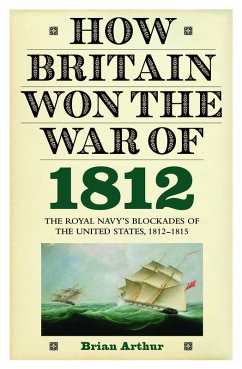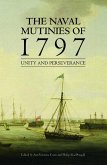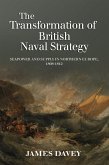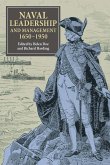Overturns established thinking about the Anglo-American War of 1812-15.
Named one of the 20 Notable Naval Books of 2011 in the US Naval Institute Proceedings Magazine, May 2012
The War of 1812 between Britain and the United States was fought on many fronts: single ship actions in the Atlantic; aUS invasion of Canada, which the Canadians heroically resisted; the burning of the new US capital, Washington, by the British, the President's house subsequently painted white to hide the fire damage; and an unsuccessful attack bythe British on New Orleans. The war is usually seen as a draw. However, as this book demonstrates, it was in fact a British victory. The United States achieved none of its war aims, and the peace, concluded in December 1814, metBritain's long-term maritime needs.
This book reassesses the war, showing how the British achieved success through an effective commercial maritime blockade which had devastating consequences on the vulnerable, undeveloped USeconomy. Neutral vessels were included - one of the causes of the war had been the United States' objection to British interference with US ships in Britain's war with Napoleonic France - and Britain's refusal to concede this point enabled the strategy of commercial maritime blockades to be reused by Britain to good effect in subsequent wars, including those of 1914-18 and 1939-45.
BRIAN ARTHUR gained a PhD at the University of Greenwich in Britain, following research in the United States which was completed with the aid of a Caird North America Fellowship from the National Maritime Museum in London.
Named one of the 20 Notable Naval Books of 2011 in the US Naval Institute Proceedings Magazine, May 2012
The War of 1812 between Britain and the United States was fought on many fronts: single ship actions in the Atlantic; aUS invasion of Canada, which the Canadians heroically resisted; the burning of the new US capital, Washington, by the British, the President's house subsequently painted white to hide the fire damage; and an unsuccessful attack bythe British on New Orleans. The war is usually seen as a draw. However, as this book demonstrates, it was in fact a British victory. The United States achieved none of its war aims, and the peace, concluded in December 1814, metBritain's long-term maritime needs.
This book reassesses the war, showing how the British achieved success through an effective commercial maritime blockade which had devastating consequences on the vulnerable, undeveloped USeconomy. Neutral vessels were included - one of the causes of the war had been the United States' objection to British interference with US ships in Britain's war with Napoleonic France - and Britain's refusal to concede this point enabled the strategy of commercial maritime blockades to be reused by Britain to good effect in subsequent wars, including those of 1914-18 and 1939-45.
BRIAN ARTHUR gained a PhD at the University of Greenwich in Britain, following research in the United States which was completed with the aid of a Caird North America Fellowship from the National Maritime Museum in London.
Dieser Download kann aus rechtlichen Gründen nur mit Rechnungsadresse in A, D ausgeliefert werden.









